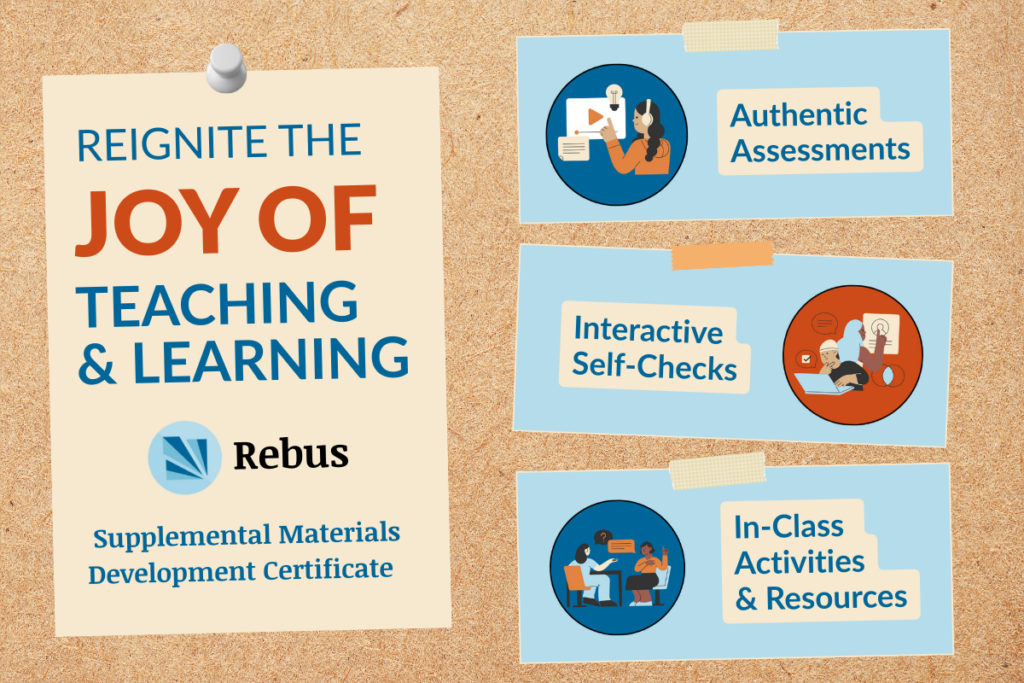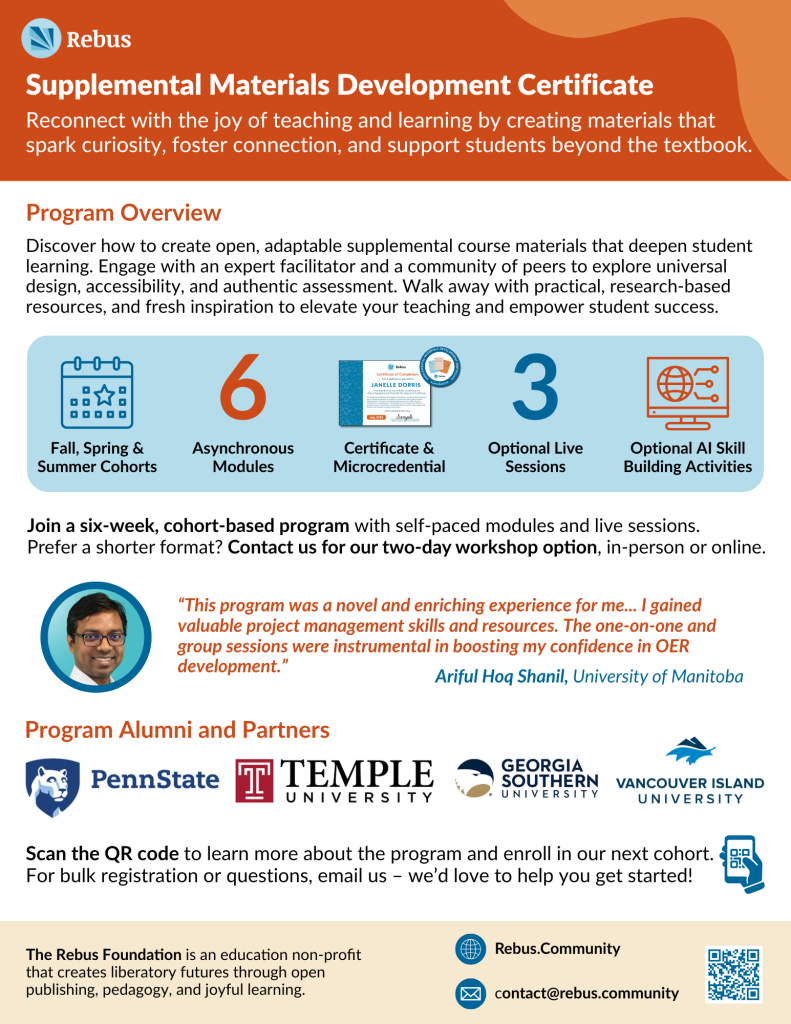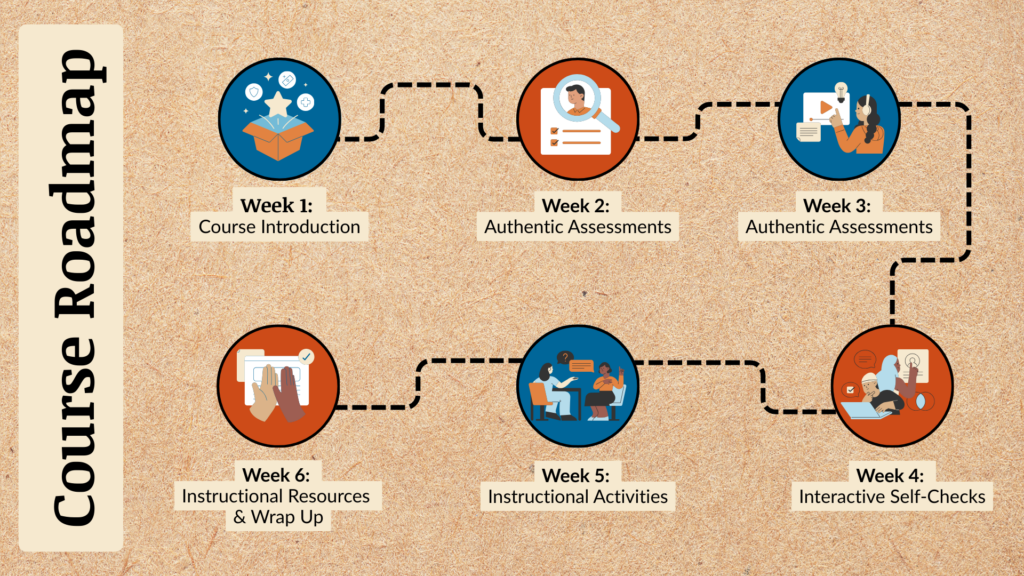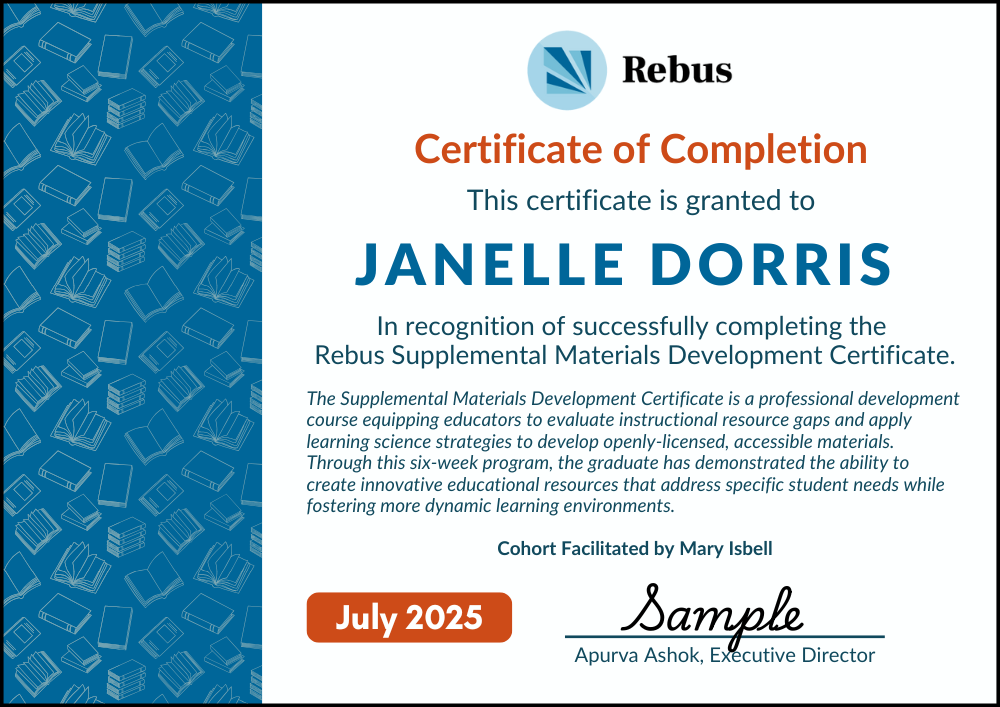
Explore, co-create, and implement supplemental materials rooted in learning science while reconnecting with the joy of teaching and learning. Register now!
About the Course

This six-week certificate course invites educators including faculty, instructional designers, librarians, and support professionals to recenter the joy of teaching and learning in your courses, workshops, or webinars. This course challenges you to consider student needs beyond textbooks, map these needs to learning outcomes, and create the materials to achieve them! Whether you’re teaching (or supporting instructors) with an open textbook, a traditional textbook, a collection of Open Educational Resources, or simply content you’ve developed, through this course you’ll learn to design supportive learning materials that transform how students engage with content, both inside and outside the classroom.
Over the six weeks, you will critically evaluate gaps in current course materials, apply learning science strategies, and build forward-thinking skills to enhance relevancy and student enrichment. You will create interactive self-checks, engaging in-class activities, authentic assessments, or other resources that address student needs while reconnecting with the joy of teaching and learning through creative development. By the end of the course, you will have at least one complete, ready-to-implement resource that is accessible, openly licensed, and tailored to your teaching context. You will also gain the confidence to adapt, modify, and create additional supplemental or ancillary materials as educational needs evolve, whether for your classroom or to support others in their instructional roles.


This course comprises six self-paced modules and three facilitated live sessions (optional to attend), where you can join a supportive community of educators to connect, share, and revel in the challenge of strengthening your courses and personal toolkits together. Throughout the course, you’ll participate in a collaborative environment where you’ll give and receive feedback on your materials from both fellow participants and the course instructor. Optional activities focused on AI, instructional documents, and deeper learning competencies will further enhance your experience should you choose to pursue them.
Learning Outcomes
For all participants:
- Explain how supplemental materials (also known as ancillary materials) support teaching and learning and enrich educational experiences.
- Identify gaps in current materials where students need additional support.
- Explore existing supplemental material collections for inspiration and adaptation.
- Identify instructional strategies that help students meet learning outcomes.
- Apply learning science and accessibility principles to ensure access for all students.
- Create one ready-to-use, openly licensed supplemental material to enhance your student success, for an instructional workshop, or to use as a sample when working with faculty, such as:
- Design an interactive self-check based on learning science principles to support learners outside of the classroom;
- Transform content into an engaging in-class activity that promotes active learning and knowledge application;
- Develop a meaningful authentic assessment that allows students to demonstrate learning in real-world contexts; OR
- Create supportive resources such as slide decks, handouts, podcasts, or other media that complement your primary course/workshop materials.
- Engage in the open education community by sharing ideas, practical strategies, and materials with fellow course participants.
- Reconnect with the joy of teaching and learning through the creative process of developing materials that energize both yourself and your students.
For instructors:
- Develop an implementation plan that connects your supplemental materials with your teaching approach and learning objectives.
- Explore methods for gathering student feedback on the effectiveness of your supplemental materials.
For instructional designers, librarians, and support professionals:
- Collaborate with faculty to develop implementation plans that align with their teaching goals.
- Explore strategies to assess the effectiveness of supplemental materials through student feedback and analytics.
Optional for all participants:
- Explore how to use AI tools ethically and effectively to create customized activities, receive feedback, and bolster the variety of activities offered to students.
- Create instructional documents to help students understand the purpose and value of supplemental materials in their learning journey.
Certificate

Participants completing 80% or more of the course deliverables will be issued a micro credential including a badge and digital certificate.
Course Dates
Summer 2026 cohort:
This asynchronous course will take place between May 18, 2026 through June 30, 2026, with three (optional) live sessions offered.
Early Bird registration deadline: March 31, 2026, at 11:59 pm ET.
Registration deadline: April 30, 2026, at 11:59 pm ET.
